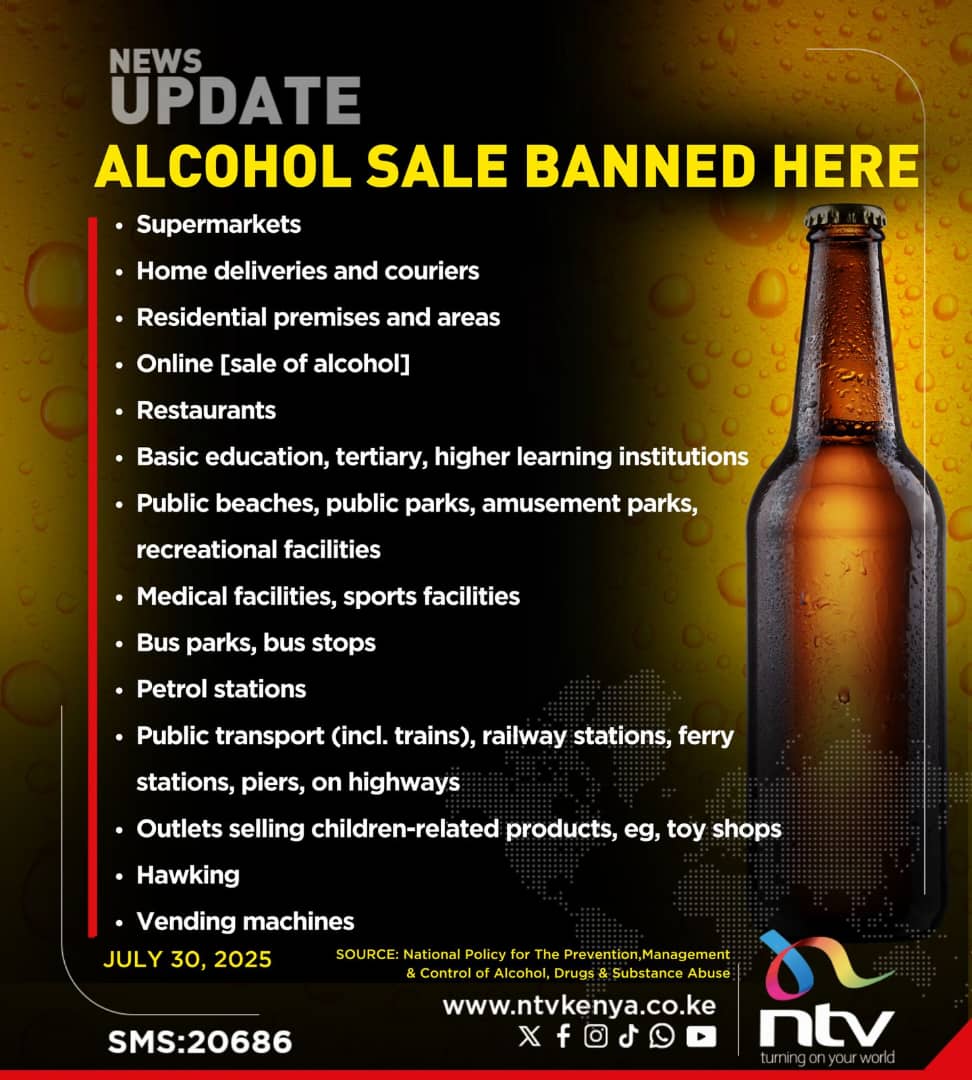Kenya Bans Sale of Alcohol in Supermarkets, Online and Residential Areas

Very soon the only place a Kenyan will be able to buy alcohol to drink from will be the brewery itself after East Africa’s biggest economy imposed sweeping restrictions on alcohol sale.
The reforms, developed by the National Authority for the Campaign Against Alcohol and Drug Abuse (NACADA), are being framed as “a national emergency response to a brewing crisis.”
“We are losing a generation,” warned NACADA CEO Anthony Omerikwa. “Alcohol abuse among our youth is threatening not only their health and education but the future of our country.”
Following a Cabinet sitting on June 24, 2025, the government approved the National Policy on the Prevention of Alcohol, Drugs and Substance Use, introducing far-reaching measures, including:
- A ban on online alcohol sales through websites, mobile apps, and delivery services
- Closure of liquor outlets within 300 meters of schools, churches, and residential estates
- Raising the legal drinking age from 18 to 21 years
- Prohibition of celebrity endorsements and alcohol advertising that targets youth or airs during children’s programming
- Mandatory health warnings in both English and Kiswahili on all alcohol packaging
- Creation of a Solatium Compensation Fund to support rehabilitation, funded through levies on alcohol vendors

The crackdown follows NACADA’s latest survey, which found that 4.7 million Kenyans aged 15 to 65 consume alcohol.
The highest usage is among youth aged 18 to 24, with over 87% of university students reporting regular alcohol use.
Alarmingly, children as young as six have reported exposure to alcohol in home environments.
Cabinet also highlighted the growing role of online platforms and home delivery in enabling underage access to alcohol, prompting an outright ban on digital alcohol sales.
“It is unacceptable that children can order alcohol like fast food,” said Interior Cabinet Secretary Kithure Kindiki. “We must take bold steps to safeguard the future.”
While public health experts, educators, and parents have welcomed the reforms, the alcohol industry has raised concerns about the economic impact. Bar owners and distributors fear that the new zoning laws could trigger mass closures, especially in urban areas.
Despite Cabinet approval, the policy must still be passed into law by Parliament. NACADA has urged lawmakers to act swiftly, warning that delays could stall momentum and prolong the crisis.
Previous attempts to regulate alcohol in Kenya have often faltered due to resistance from powerful industry lobbies and weak enforcement—particularly in informal settlements where illicit brews remain widespread.
Kenya’s latest initiative places it among a small but growing number of African nations taking aggressive steps to combat alcohol abuse.
Whether the country can turn policy into real change on the ground now depends on the speed and resolve of Parliament.
If implemented, the reforms could set a new regional benchmark in tackling youth substance abuse across the continent.







